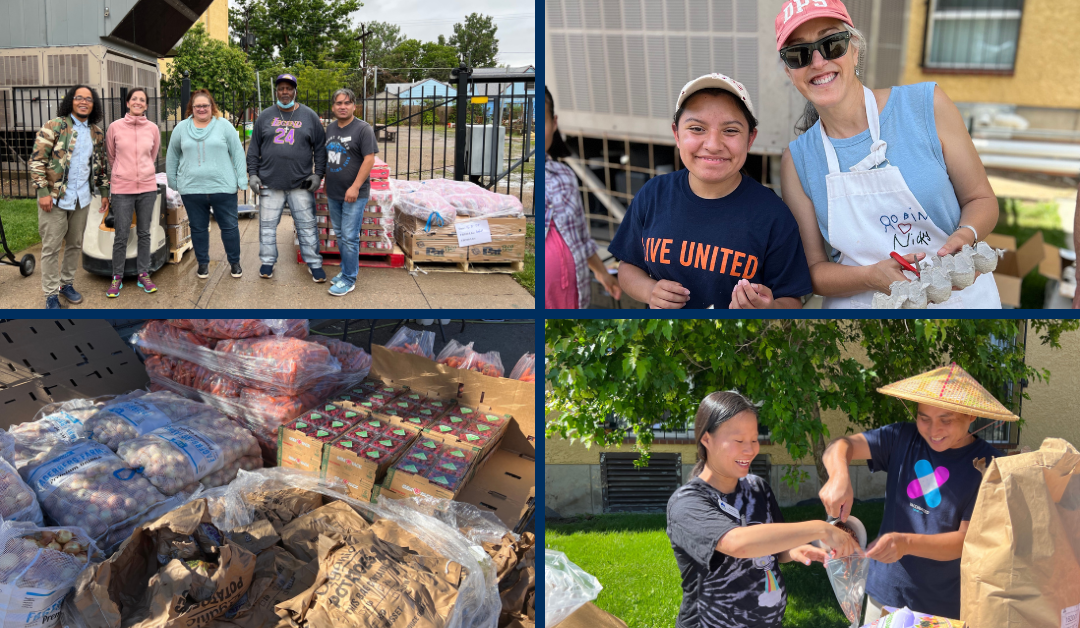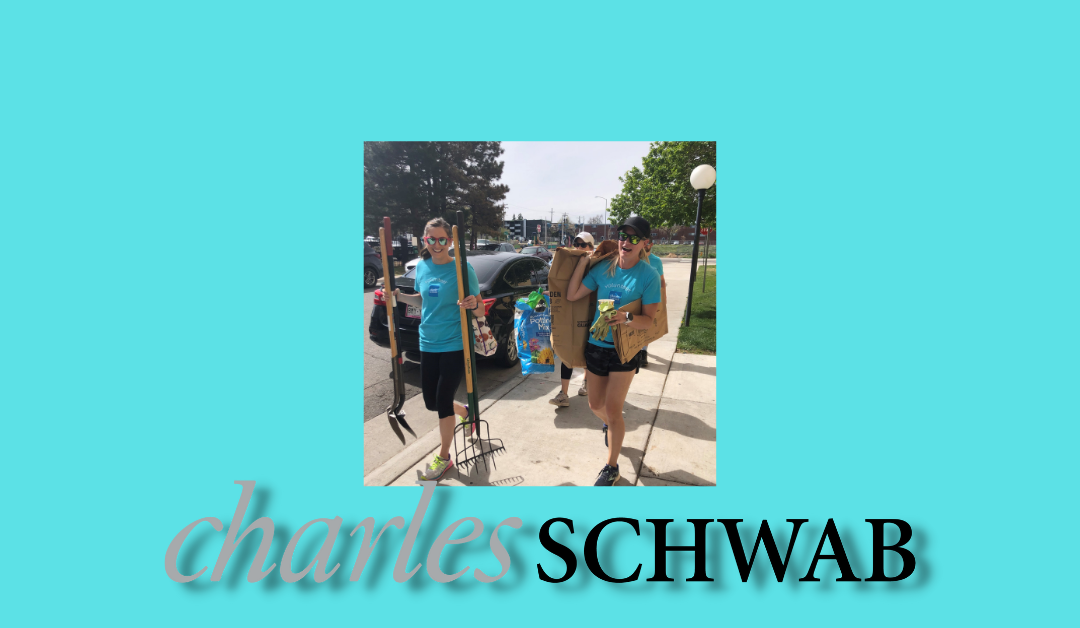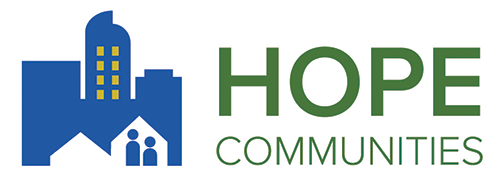Frequently Asked Questions
What is “affordable” housing?
The US Department of Housing and Urban development declares individuals as cost-burdened if they spend more than 30% of their income on housing. While 30% of an individual’s income can vary significantly, we use this general figure when talking about what determines a unit’s affordability. In Denver, this also means consulting the Area Median Income of an individual or family, determined annually by the Denver Housing Authority. Residents who make less than the Area Median Income may qualify for lower rent from affordable rental housing providers.
What is Hope Communities doing to address Affordable Housing issues in Denver?
The need for a safe, affordable place to live in Denver is critical.
There are many types of affordable housing (emergency, transitional, rental, home ownership, etc.), and at Hope Communities we focus on affordable rental housing.
Hope services 1,400 people annually, with close to 300 units of affordable rental housing at four properties throughout Denver. Additionally, Hope provides resident services and programs on site and continues to pursue opportunities to develop and manage affordable housing properties.
How is affordable housing different from subsidized housing? What about public housing?
Affordable housing has minimum and maximum criteria. To qualify for affordable housing, families must make less than the Area Median Income – and depending on family size, Hope Communities is given a maximum rental amount that it cannot charge beyond. Subsidized housing is in the form of Section 8/Housing Choice vouchers. This means that a family will only spend 30% of its income on rent, and the government will supply the remaining balance. Public housing is operated by government housing authorities, and is housing that is subsidized.
How does Hope determine an individual or family’s rental payment?
Hope rents at affordable rates in the following ways:
- by choosing to rent apartments at lower than market-rates.
- by renting to individuals and families who have Section 8 vouchers (also called Housing Choice vouchers, which means they spend 30% of their income on housing, and the government pays the remaining rental amount).
- through our Low Income Housing Tax-Credit (LIHTC) properties (in which the rent we charge is restricted according to an individual or family’s Area Median Income). Almost all of Hope’s renters have incomes between 30%-60% of Denver’s Area Median Income (AMI).
What is a Low-Income Housing Tax Credit (LIHTC)?
LIHTC is a Federal housing assistance program that provides tax incentives to owners and developers of affordable housing, like Hope Communities. The program does not provide direct assistance to renters, but rather is used to finance the construction (not operation) of rental properties. This financing is given with the understanding that Hope Communities rents units to families earning less than the AMI. Since the 1980s when this program began, millions of affordable rental units have been created throughout the United States.
How does one qualify for a Section 8/Housing Choice voucher?
Visit the Department of Housing and Urban Development’s website to learn more about the program, requirements for qualification, and how to apply for a voucher. Hope Communities does not distribute or control these vouchers, or influence in any way who receives them.
What kinds of programs and services does Hope offer to residents?
Free, voluntary programming is available not only to all residents, but to the greater community. Our Founders, Ray & Marilyn Stranske, believed in community building – and that by providing resources for the entire neighborhood Hope can increase its ability to create inclusive, healthy communities. Finding a safe, affordable place to live is foundational, but only the first step toward being an active and engaged member of society. Hope Communities’ sees programs and services combined with housing as a holistic approach to ensuring Denver is a place of opportunity for all.
Approximately 1,000 people take part in programs and services offered by Hope each year. Hope offers programs and services in the following categories: adult education, youth development, health & wellness, community building, economic mobility, and resource navigation.
How is Hope funded?
Hope’s portfolio includes four affordable rental entities in which Hope has an ownership interest and manages. These entities generate revenue in the form of rental income needed to cover most of the general operating expenses of each entity. Additionally, Hope receives financial support from the government, foundations, corporations, and individual donations, all of which are used to further the mission of Hope Communities. Some capital enhancements, technology, infrastructure, as well as the programs and services provided free of charge to residents and the greater community are reliant on fundraising dollars. In essence, the self-sufficiency components of Hope Communities are supported through the generosity of donors, foundations and in-kind contributions.
How does Hope Communities avoid discriminatory rental practices?
Hope Communities follows all federal fair housing policies and laws (established by the Office of Fair Housing and Equal Opportunity). Hope Communities, and all its entities, does not and shall not discriminate based on race, color, religion (creed), gender, gender expression, age, national origin (ancestry), disability, marital status, sexual orientation, or military status, in any of its activities or operations. The activities include, but are not limited to, hiring and firing of staff, selection of volunteers and vendors, and provision of services. We are committed to providing an inclusive and welcoming environment for all our staff, partners, residents, and volunteers.
Recent Posts

Partnerships that keep our communities fed
Since starting our food distribution program at the height of the pandemic in 2020, we have partnered with several agencies to get fresh, healthy foods to our community. While we have been fortunate enough to be the recipient of several generous grants, often what we...

#Schwab4Good
In early May, volunteers with Charles Schwab came to Hidden Brook to help out for their annual volunteer day. All across the country, Scwabbies, as they call themselves, donated a day of their time to non-profits to assist in doing anything that needed doing. This...

Helping Families This Holiday Season
What is Treasure Store? Treasure Store was started as a way to help our resident families during the holidays. Every parents wants to make sure their children have a gift to open on their day of celebration, but it can be a financial hardship. To ease that burden,...

Updates from the Community
Our Mission. We strengthen communities and provide pathways to economic and personal opportunity through affordable housing, educational programs and support services. One of the most important things you can do on this Earth is to let people know they are not alone....
